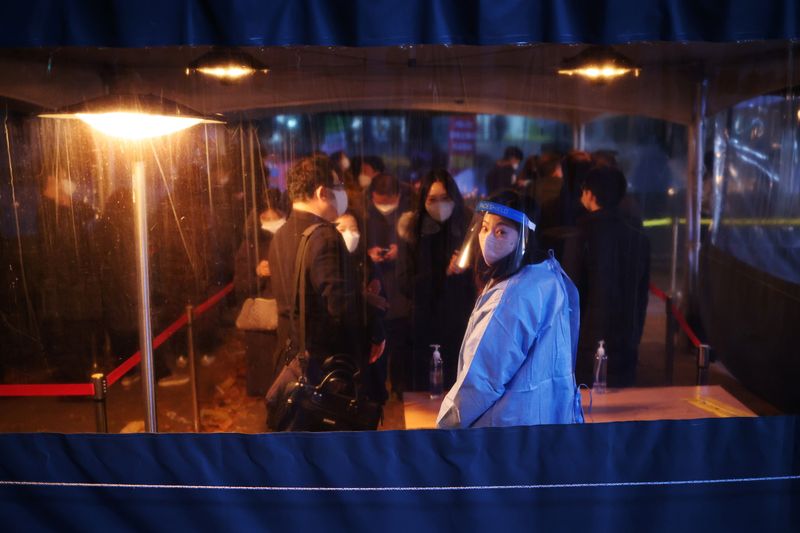SEOUL (Reuters) – South Korea’s daily coronavirus case numbers rose to a new high on Thursday, as authorities halted quarantine exemptions for fully vaccinated inbound travellers for two weeks in a bid to fend off the Omicron variant.
The Korea Disease Control and Prevention Agency (KDCA) reported 5,266 cases for Wednesday, a day after the daily tally rose above 5,000 for the first time amid concerns over a sharp rise in patients with severe symptoms.
South Korea will require a 10-day quarantine for all inbound travellers for two weeks starting Friday, halting exemptions given earlier to fully vaccinated people, the KDCA said.
The measure came after South Korea confirmed its first five cases of the Omicron variant late on Wednesday, including a fully vaccinated couple who arrived last week from Nigeria, followed by two of their family members and a friend.
The government is restricting arrivals from eight countries including South Africa, where the variant was first identified. It will now add Nigeria to the list, effective Friday, while suspending direct flights from Ethiopia starting Saturday, the KDCA said.
“We’re on a bumpy path toward a phased recovery of normalcy, and risks from the new Omicron variant are rising,” President Moon Jae-in told a meeting with Christian groups on Thursday.
The country has fully inoculated nearly 92% of adults and is now focusing on vaccinating children and a booster programme, but experts have warned that cases could continue to rise due in part to the spread of the potentially more transmissible variant.
The number of cases has spiked since distancing curbs were relaxed last month, and the government this week shelved plans for further easing due to growing strains on its healthcare system from surging hospitalisation and death rates as well as Omicron concerns.
KDCA data showed the number of severe cases rose to a record 733, and 90% of intensive care unit beds in the greater Seoul area are occupied, with 915 patients waiting for admission.
Total infections rose to 457,612, with 3,705 deaths.
(Reporting by Hyonhee Shin; Editing by Richard Pullin)






















